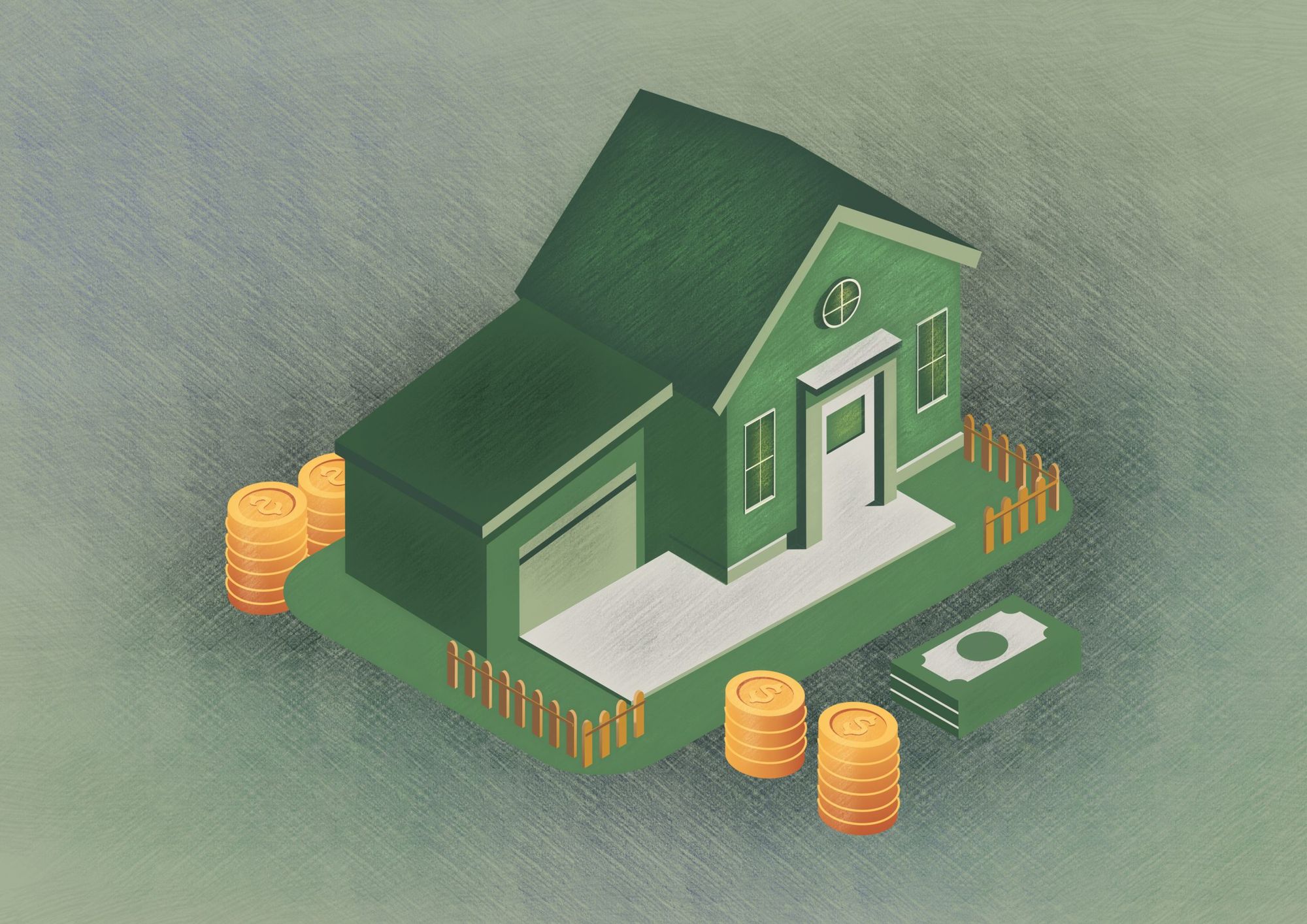House prices in Europe have risen almost unstoppably since 2010, but a change is coming due to the pandemic and the war. Rising commodity prices and supply chain disruptions have caused a major problem for the industry recovering from the coronavirus pandemic restrictions. Still, the influx of Ukrainian refugees could boost the market.
As European economies have begun to recover from the COVID-19 recession, there is growing optimism among industry leaders in the real estate market. PwC’s Emerging Trends in Real Estate: Europe report underpins the optimism by finding that the sector has successfully survived the worst of the pandemic period and that real estate remains a popular investment. This optimism is not unfounded, as there is still strong investor demand in the market. On the other hand, there is uncertainty regarding inflation and supply chains, which mainly affects the soaring construction costs at a time when the sector wants to restart development projects.
Over the past year and a half, many people have moved to the countryside from the big cities. People’s intention to buy a home correlates with their household income; a critical factor in the housing market is how many households save how much for how long. On a forward-looking basis, net savers had the highest proportion of those who wanted to buy a house. Therefore, although most of those who saved money during the pandemic already invested or spent it, accumulated savings can still boost housing demand in the short term.

In addition to savings, mortgage conditions and house price expectations are also crucial: expectations for credit conditions and house prices suggest a dynamic housing market. People expect loans to become easier to access and mortgage rates to fall, boosting demand further for housing. The attractiveness of property as an investment has increased steadily since the start of the pandemic.
The war has brought mistrust and new tenants
The Czech real estate market returned to pre-pandemic levels at the beginning of 2022. According to Marie Baláčová, Head of Data and Analysis for Central and Eastern Europe at Cushman and Wakefield, housing demand has returned to its previous level, and investment activity started to boom in early 2022.
The office market in Prague has seen low developer activity, with the lowest level of office space built since 2016, and rising construction costs could further slow down this sector. In contrast, rental activity is growing, helping to fill gaps in the market created by changes in corporate office demand. The rental vacancy rates have also remained relatively low.
The industrial real estate and logistics market is beginning to react to the unprecedented demand generated by e-commerce and the automotive industry. The number of industrial sites under construction is currently at its highest point in history, and the lack of opportunities for building around Prague is pushing new developments further away from the capital, especially near Olomouc, Ostrava, and Brno. 76% of the 1.1 million square meters under construction have already been pre-let, indicating that demand still exceeds supply. Rental prices will therefore continue to rise.
The pandemic has positively impacted online sales; thus, retailers are reducing the number and size of their brick-and-mortar stores. On the other hand, business strategies adopted by e-commerce giants such as omnichannel, which means combining multiple contact channels into a single interchangeable system, create some new demand.
Unfortunately, the optimism did not last long. The Russian invasion of Ukraine is putting businesses in a difficult situation again, fueling inflation, higher interest rates, and generating general uncertainty.

In contrast, the Slovakian real estate market has been developing dynamically in recent years, Slovakian real estate specialist Viktor Obtulovič told Hype&Hyper. Over the past four years, average property prices have increased by around 20 percent yearly. If one bought a property in Bratislava, the capital of Slovakia, in 2017, they could now sell it for double the purchase price. Property prices in Slovakia have risen at the fastest pace in the last ten years. The average price of a 3-bedroom apartment in Bratislava is more than €230,000, meaning that it is difficult for a family living on average salaries to buy a property. In Slovakia, the average price of a detached house is €2,000 per square meter, while the average price of an apartment is €3,000 per square meter. According to Obtulovič, Slovaks prefer to live on their own property, as statistics show that more than 90 percent of them live in their own home.
Over the past year and a half, mortgage rates have been incredibly low, with some customers getting mortgages at rates as low as 0.36%. Ultra-low interest rates have been the main reason for the housing boom. The high demand, low supply, and low interest rates have led to expensive new developments built with premium building materials. The real estate bubble is starting to be a potential problem; even the National Bank of Slovakia (NBS) deems housing prices at „risky levels” in the country.
The war mainly affected the rental market. Since March 2022, Ukrainian refugees have been living in more than a third of the homes for rent. Viktor Obtulovič told Hype&Hyper that the rental market in Slovakia is virtually non-existent, as the country has 5.4 million inhabitants, but there are just over 4,800 residential properties for rent on the market. Many Ukrainians are going home, but some decided to stay and work in Slovakia, and many more refugees might come in the future. So, Ukrainians still make most of the rental requests.
The Hungarian housing market is inevitably slowing down, we just started to experience a decline in demand, and the period of growth that began in 2014 is almost over, Tünde Tancsics, an analyst at Eltinga Real Estate Research Centre, told VG Podcast. „The first quarter and last year still saw record price rises, as demand for pre-purchases postponed during the pandemic and fleeing rising lending rates simultaneously hit the market. Housing purchases, mostly from loans, have been hindered by rising credit costs and rapidly rising prices. Besides Budapest, real estate is now also significantly overvalued in rural areas,” Tancsics highlighted.
The situation is not much different in Poland. According to the Polish Credit Information Office, in April this year, the number of housing loans granted fell by 38.7%, while their value fell by 32.5% compared to April 2021. The drop is due to a decline in creditworthiness and concerns about rising installments.

Edyta Wojtyła, Dr., told TVN24 that the real estate market has boomed in recent years. „Prices have risen month by month, and people were buying in fear of price rises. They stopped to think because they knew it would be just even more expensive later,” she explained. Wojtyła believes the boom is over, and the market is weakening but not collapsing as there is a mild slowdown.
The economist thinks that the prices will continue to rise not only on the demand but also on the supply side. The producer price will be the limit. Real estate developers will raise the prices because the construction costs of such buildings are higher. „People who did not buy property before will start wondering whether they can even afford maintenance costs in the future,” she said.
Do rising interest rates mean falling house prices?
A study on long-term housing market trends suggests that property prices in the European Union have risen much more steadily than rental prices over the past decade. The European Commission’s research revealed that both rental and house prices have been rising consistently in the EU since 2010. However, the cost of buying a home has risen by 45%, while the cost of renting a home has increased by a much lower rate, with an average of 17%.
Some experts argue that a slowdown is coming as we face higher interest rates and our generation’s most severe cost of living crisis. The European Central Bank warned in May that house prices could start to fall if mortgage rates rise faster than inflation.
Interest rates affect property prices because they determine how much one must pay to borrow money. When interest rates are low, more people want to invest in property, driving up prices, while higher interest rates tend to have the opposite effect.
Tünde Tancsics told the VG Podcast that she does not believe that real estate prices will start to fall in the future, as with inflation at 10-12%, they will still rise. However, in real terms, a gradual depreciation may already start as demand slows. The housing markets’ future depends on the change of interest rates as central banks’ decisions to raise interest rates can affect home loans, and if inflation is not curbed, they could even reach double digits. People buy less due to the uncertain economic outlook, and potential buyers and developers are becoming increasingly cautious as inflation is also squeezing real wage growth. Rising construction material prices and supply chain disruptions following the pandemic have been further exacerbated by the Russo-Ukrainian war.
Viktor Obtulovič believes that the still very low (3%) interest rates are creating a strong demand for property purchases. He thinks it is unlikely that the market will cool down as much as in Czechia, where the average interest rate is 6%. Regarding the near future, he expects interest rates to be around 4% by the end of 2022.
Graphics: Réka Pisla / Hype&Hyper

S/ALON BUDAPEST focuses on Hungarian glass this year

Ivan Dorn: The Renaissance man forever in motion










